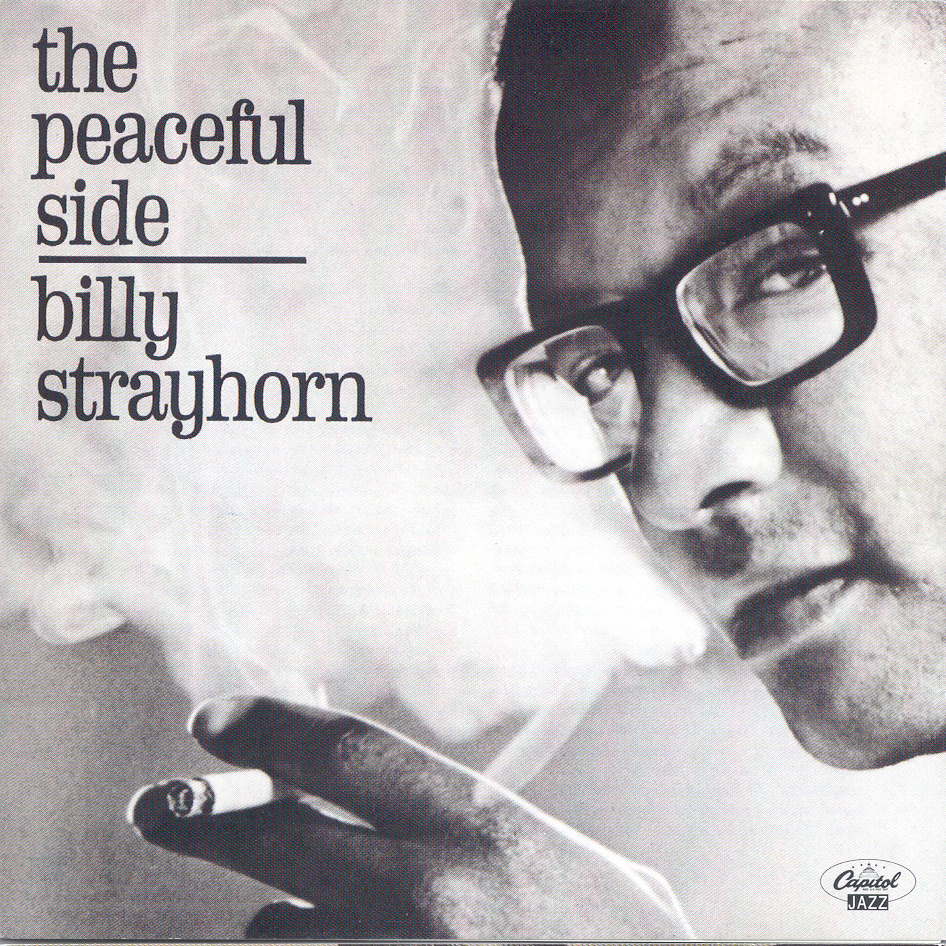Capitol Jazz
©Laurence Svirchev
 This long-unavailable 1961 recording was the product of a serendipitous meeting between Strayhorn and producer Alan Douglas in a Parisian night-club where “Strays” hung out. As Duke Ellington’s right-hand man, Strayhorn composed and arranged many of Ellington’s best-known tunes. He recorded infrequently on his own. Douglas’ intention was to record Strayhorn in an intimate setting outside of the Ellington context.
This long-unavailable 1961 recording was the product of a serendipitous meeting between Strayhorn and producer Alan Douglas in a Parisian night-club where “Strays” hung out. As Duke Ellington’s right-hand man, Strayhorn composed and arranged many of Ellington’s best-known tunes. He recorded infrequently on his own. Douglas’ intention was to record Strayhorn in an intimate setting outside of the Ellington context.
The Peaceful Side allows the listener a rare glimpse into Stray’s musical erudition. The compositions are soaked with pale fire, rife with pastels, and signified by a tortured heart ultimately seeking solace only in beauty. Tempi are uniformly adagio, a bit leisurely, as if the swing takes a bit of heat out of the urge of it all.
“Lush Life”, anthem of the lovelorn, is stated simply, elegantly, with dignity and resignation rather than pathos. For this arrangement, a vocalese quartet accents the emotions with “Aaah…!”
“Passion Flower” and “Day Dream” are Strayhorn compositions on which Johnny Hodges was often featured in the big band. Here they are unadorned, except by bass or vocalese quartet which add sparingly to the reverie. References in jazz to classical music are rare, yet “Strange Feeling” (from Ellington’s Perfume Suite) has the air of Camille Saint-Saëns’ Rhapsodie d’Auvergne.
This CD is a minor masterpiece, a distillation of the work of a mythical master of romance. It is a work that can be appreciated by people of conservative and even non-jazz aesthetics.
Originally issued in then-faddish ‘electronically re-channeled stereo’, Michael Cuscuna has thankfully used the original monophonic master for the CD version to enhance the sound to its original lovely state.
Author’s 2011 Note: This review was originally published in 5/4 Magazine, Seattle, 1997. This original review contained an outrageously inaccurate statement to the effect that the bass was falsely turned up in Cuscuna’s remastering. After the review was published, I found that the core of my AR-40 speakers, amazingly accurate speakers of the day, had blown out and distorted the sound. This revision corrects my 1997 error.